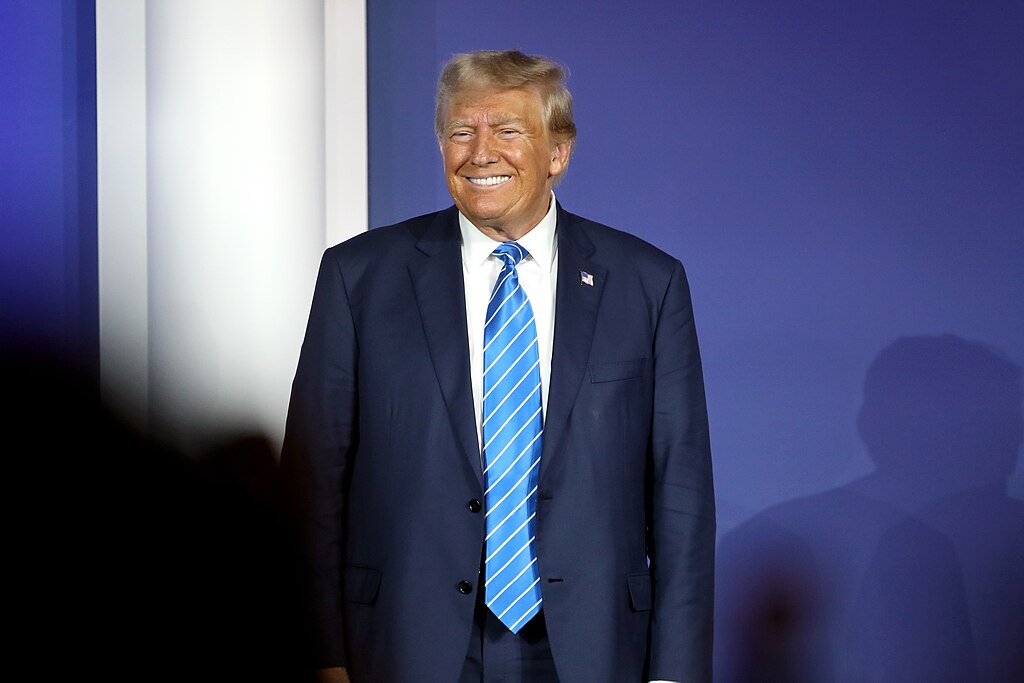Donald Trump has made a striking promise to position the United States as the global leader in cryptocurrency if he is re-elected. Speaking at the Bitcoin 2024 conference in Nashville on July 27, Trump assured that his administration would not sell any Bitcoin currently held by the U.S. government. This pledge has sparked both excitement and concern within the crypto community.
A Commitment to Bitcoin
Trump's declaration that the U.S. will retain all its Bitcoin holdings aims to resonate with crypto enthusiasts who advocate for holding digital assets long-term. According to reports, the U.S. government holds approximately 212,847 Bitcoin, valued at around $14.4 billion as of late July 2024. This stockpile includes Bitcoin seized from various criminal investigations, such as the 2022 seizure from the Bitfinex hack.
The Bitfinex Connection
The Bitfinex hack in 2016 resulted in the theft of 119,754 Bitcoin, of which the U.S. government seized approximately 94,636 Bitcoin in 2022. These assets significantly contribute to the government’s total Bitcoin holdings. However, the ongoing investigation into the hack complicates the fate of these funds. Federal asset forfeiture laws often prioritize ongoing investigations over the immediate return of stolen assets, leaving the future of these funds uncertain.
Legal and Procedural Challenges
U.S. asset forfeiture laws and the complexities of ongoing investigations mean that the government is not necessarily required to return stolen funds promptly. In the case of the Bitfinex assets, there is little precedence to guide the Justice Department’s actions. Legal hurdles could prevent the immediate return of these funds, especially if they are tied to other criminal activities or investigations.
Trump’s commitment to holding all government-owned Bitcoin raises questions about whether this policy would extend to assets seized from criminal activities. It is unclear if his administration would defy court orders mandating the return of these funds or if the policy strictly applies to holding Bitcoin without converting it to fiat currency.
The Ulbricht Factor
Ross Ulbricht, the founder of the Silk Road marketplace, adds another layer of complexity. Convicted in 2015 for various crimes, Ulbricht is currently serving a double life sentence plus 40 years. In 2020, the U.S. government seized 50,591 Bitcoin, valued at approximately $3.4 billion today, connected to Ulbricht and Silk Road.
During his speech, Trump promised to commute Ulbricht’s sentence if re-elected. A commutation would release Ulbricht but maintain his criminal conviction, leaving the seized Bitcoin under government control. This contrasts with a pardon, which would absolve Ulbricht of his crimes and potentially allow him to reclaim the seized assets. However, Ulbricht reportedly signed away his claim to these funds as part of a deal to repay his restitution debt, complicating any potential recovery.
Future Implications
Trump’s bold promise to retain all government-held Bitcoin reflects his ambition to make the U.S. a leading force in the crypto world. However, the practical implementation of this policy remains uncertain, especially concerning seized assets like those from the Bitfinex hack and the Silk Road case. The distinction between holding Bitcoin and adhering to legal obligations will be crucial in navigating this policy.
As the 2024 election approaches, the crypto community will closely watch how these promises and potential legal challenges unfold, shaping the future of cryptocurrency regulation in the United States.



 Pentagon to Halt Ivy League Programs for U.S. Military Officers Starting 2026
Pentagon to Halt Ivy League Programs for U.S. Military Officers Starting 2026  Snowflake Forecasts Strong Fiscal 2027 Revenue Growth as Enterprise AI Demand Surges
Snowflake Forecasts Strong Fiscal 2027 Revenue Growth as Enterprise AI Demand Surges  Macron Urges Emergency UN Security Council Meeting as US-Israel Strikes on Iran Escalate Middle East Tensions
Macron Urges Emergency UN Security Council Meeting as US-Israel Strikes on Iran Escalate Middle East Tensions  Ethereum Whales Just Loaded ~9 Million ETH — The Squeeze Is On
Ethereum Whales Just Loaded ~9 Million ETH — The Squeeze Is On  Philippines, U.S., and Japan Conduct Joint Naval Drills in South China Sea to Boost Maritime Security
Philippines, U.S., and Japan Conduct Joint Naval Drills in South China Sea to Boost Maritime Security  Federal Judge Blocks Virginia Social Media Age Verification Law Over First Amendment Concerns
Federal Judge Blocks Virginia Social Media Age Verification Law Over First Amendment Concerns  Nvidia Earnings Preview: AI Growth Outlook Remains Strong Beyond 2026
Nvidia Earnings Preview: AI Growth Outlook Remains Strong Beyond 2026  Meta Encryption Plan Sparks Child Safety Concerns Amid New Mexico Lawsuit
Meta Encryption Plan Sparks Child Safety Concerns Amid New Mexico Lawsuit  Trump Launches Operation Epic Fury: U.S. Strikes on Iran Mark High-Risk Shift in Middle East
Trump Launches Operation Epic Fury: U.S. Strikes on Iran Mark High-Risk Shift in Middle East  Israel Declares State of Emergency as Iran Launches Missile Attacks
Israel Declares State of Emergency as Iran Launches Missile Attacks  Samsung Electronics Stock Poised for $1 Trillion Valuation Amid AI and Memory Boom
Samsung Electronics Stock Poised for $1 Trillion Valuation Amid AI and Memory Boom  Trump Warns Iran as Gulf Conflict Disrupts Oil Markets and Global Trade
Trump Warns Iran as Gulf Conflict Disrupts Oil Markets and Global Trade  FxWirePro- Major Crypto levels and bias summary
FxWirePro- Major Crypto levels and bias summary  Hyundai Motor Group to Invest $6.26 Billion in AI Data Center, Robotics and Renewable Energy Projects in South Korea
Hyundai Motor Group to Invest $6.26 Billion in AI Data Center, Robotics and Renewable Energy Projects in South Korea 































